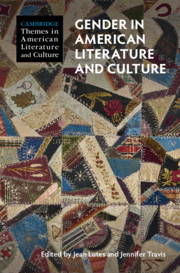Book contents
- Gender in American Literature and Culture
- Cambridge Themes in American Literature and Culture
- Gender in American Literature and Culture
- Copyright page
- Contents
- Contributors
- Acknowledgments
- Introduction
- Part I Intimacies
- Part II Aggressions
- Chapter 8 Sexual Violence and Indigenous Women
- Chapter 9 Intergenerational Memory and the Making of Indigenous Literary Kinships
- Chapter 10 US Women Writers, Sexual Violence, and Narrative Resistance
- Chapter 11 Gender, Violence, and Accountability in Contemporary Queer Latina Writing
- Chapter 12 The Literature of Racial Uplift and White Feminist Failure
- Chapter 13 Black Male Studies and Contemporary African American Writing
- Chapter 14 Representations of White Masculinity in Veteran-Authored Iraq War Fiction
- Part III New Directions
- Bibliography
- Index
Chapter 10 - US Women Writers, Sexual Violence, and Narrative Resistance
from Part II - Aggressions
Published online by Cambridge University Press: 01 April 2021
- Gender in American Literature and Culture
- Cambridge Themes in American Literature and Culture
- Gender in American Literature and Culture
- Copyright page
- Contents
- Contributors
- Acknowledgments
- Introduction
- Part I Intimacies
- Part II Aggressions
- Chapter 8 Sexual Violence and Indigenous Women
- Chapter 9 Intergenerational Memory and the Making of Indigenous Literary Kinships
- Chapter 10 US Women Writers, Sexual Violence, and Narrative Resistance
- Chapter 11 Gender, Violence, and Accountability in Contemporary Queer Latina Writing
- Chapter 12 The Literature of Racial Uplift and White Feminist Failure
- Chapter 13 Black Male Studies and Contemporary African American Writing
- Chapter 14 Representations of White Masculinity in Veteran-Authored Iraq War Fiction
- Part III New Directions
- Bibliography
- Index
Summary
This essay follows scenes of threatened sexual violence in three canonical novels by women, Edith Wharton’s The House of Mirth (1905), Willa Cather’s My Àntonia (1918), and Zora Neale Hurston Their Eyes Were Watching God (1937). By focusing on these scenes in isolation, I draw out their affective descriptions and resist the resolution of plot in an attempt to evince modern literature’s capacity to represent violence against women and to rupture the normalization of rape culture. In these scenes, Wharton, Cather, and Hurston use narrative innovation to dramatize these threats: Wharton using long, elliptical sentences to signal both Lily’s fear and her denial; Cather placing Jim Burden in the victim’s place, thereby reminding us not only of the vulnerability of women but also of the sexual abuse of boys by older men; Hurston using animal possession as a figure for Tea Cake’s increasingly jealous and violent attitude.
- Type
- Chapter
- Information
- Gender in American Literature and Culture , pp. 160 - 172Publisher: Cambridge University PressPrint publication year: 2021

